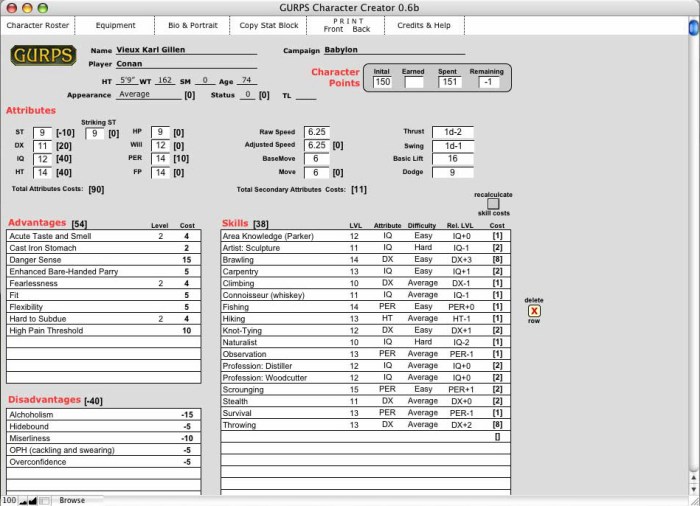Everyone’s an author 3rd edition pdf – The concept of authorship is undergoing a profound transformation in the digital age, as evidenced by the increasing accessibility of writing and publishing tools. This has led to a democratization of authorship, empowering individuals from all walks of life to share their stories, ideas, and perspectives with the world.
The third edition of “Everyone’s an Author” delves into this evolving landscape, exploring the challenges and opportunities that aspiring authors face in the modern era.
With the advent of social media and online platforms, the boundaries of authorship have become increasingly blurred. Individuals can now self-publish their works, bypassing traditional gatekeepers and reaching a global audience. This has given rise to new genres and forms of writing, challenging conventional notions of what it means to be an author.
Introduction

The concept of “everyone’s an author” has gained significant prominence in recent times, reflecting the profound transformation in the production and dissemination of knowledge and information. In the past, authorship was largely confined to a select group of individuals, such as scholars, journalists, and literary figures.
However, with the advent of digital technologies and the widespread availability of publishing platforms, the traditional boundaries of authorship have become increasingly blurred.The historical context of this concept can be traced back to the emergence of print culture and the subsequent rise of mass media.
The printing press democratized access to written works, enabling a broader range of individuals to share their ideas and perspectives. However, the traditional publishing industry remained dominated by a small number of gatekeepers who controlled the production and distribution of written content.In
the digital age, the rise of the internet and social media has further accelerated the democratization of authorship. The ease with which individuals can now create and publish their own content has led to an explosion of online writing and self-publishing.
This has given voice to a diverse range of perspectives and experiences that were previously marginalized or excluded from mainstream discourse.
The Role of Technology: Everyone’s An Author 3rd Edition Pdf

The advent of digital technology has revolutionized the writing and publishing landscape, democratizing access to tools and platforms that were once exclusive to traditional publishers. This technological revolution has empowered individuals from all walks of life to become authors and share their voices with the world.
Impact of Social Media and Online Platforms
Social media and online platforms have played a pivotal role in fostering a new era of authorship. These platforms provide writers with unprecedented opportunities to connect with readers, build communities, and share their work in real-time. Social media platforms like Twitter and Facebook allow authors to engage directly with their audience, share excerpts, and promote their books, while online writing communities like Wattpad and Medium offer a supportive environment for aspiring writers to share their work and receive feedback.
Emergence of New Genres and Forms of Writing
The digital age has also witnessed the emergence of new genres and forms of writing. Platforms like Wattpad and Archive of Our Own have given rise to the popularity of fan fiction, where writers create stories based on existing fictional universes.
Social media has fostered the growth of micro-fiction, where writers craft concise, impactful stories within the character limits of platforms like Twitter.
Challenges and Opportunities
In the modern era, aspiring authors face a unique set of challenges and opportunities. The advent of digital publishing and the rise of self-publishing platforms have democratized the publishing process, making it easier for authors to get their work out there.
However, these same factors have also increased competition and made it more difficult for authors to stand out from the crowd.
One of the biggest challenges facing aspiring authors is the sheer volume of content that is being published. With millions of books being released every year, it can be difficult for authors to get their work noticed. This is especially true for authors who are not traditionally published, as they do not have the benefit of a publisher’s marketing and distribution network.
Another challenge facing aspiring authors is the changing nature of the publishing industry. In the past, authors relied on traditional publishers to get their work out there. However, with the rise of self-publishing, authors now have more options than ever before.
This can be both a blessing and a curse, as it can be difficult to know which path is right for you.
Overcoming Obstacles and Achieving Success, Everyone’s an author 3rd edition pdf
Despite the challenges, there are also a number of opportunities available to aspiring authors. The digital age has made it easier than ever for authors to connect with their readers. Social media, email marketing, and other online tools can be used to build a following and generate interest in your work.
There are also a number of resources available to support authors. Writing workshops, conferences, and online courses can help authors improve their craft and learn about the business of writing. Additionally, there are a number of organizations that provide support and resources to authors, such as the Authors Guild and the Society of Children’s Book Writers and Illustrators.
By overcoming obstacles and taking advantage of the opportunities available, aspiring authors can increase their chances of success. Here are a few strategies for achieving success as an author:
- Write a great book. This may seem obvious, but it’s worth repeating: the most important thing you can do as an author is to write a great book. Your book should be well-written, engaging, and original. It should also be something that you’re passionate about, as this will come through in your writing.
- Build a platform. In the digital age, it’s more important than ever for authors to build a platform. This means creating a website, blog, and social media presence. It also means getting involved in your community and networking with other authors.
- Market your book. Once you’ve written a great book and built a platform, it’s time to market your book. There are a number of different ways to do this, such as social media, email marketing, and advertising.
- Be persistent. Success as an author doesn’t happen overnight. It takes hard work, dedication, and persistence. Don’t give up on your dream of becoming an author. Keep writing, keep marketing your book, and keep networking with other authors.
Eventually, you will achieve your goals.
The Impact on Society

The advent of self-publishing and social media has democratized the publishing process, allowing anyone with an internet connection to share their stories and ideas. This has profound implications for society, as it challenges traditional notions of authorship, gatekeeping, and the dissemination of information.
Traditional Publishing Models and Gatekeepers
In the traditional publishing model, authors submitted their manuscripts to publishing houses, which acted as gatekeepers, deciding which works were worthy of publication. This process often favored established authors and those with connections in the industry, limiting the diversity of voices in literature.
Self-publishing has disrupted this model, giving authors the power to bypass gatekeepers and publish their work directly to readers. This has opened up opportunities for marginalized voices and new perspectives to reach a wider audience.
Increased Diversity and Inclusivity
The democratization of publishing has the potential to increase diversity and inclusivity in storytelling. Authors from all backgrounds and experiences can now share their stories, leading to a more representative and nuanced portrayal of society.
This increased diversity can challenge stereotypes, promote empathy, and foster a more inclusive and equitable society.
The Future of Authorship

The digital age has brought about a paradigm shift in the realm of authorship. As technology continues to advance at an exponential pace, it is essential to explore the trajectory of authorship in the years to come. This section delves into the emerging trends and innovations that will shape the field, examining their implications for the role of authors and the consumption of content.
One of the most significant trends shaping the future of authorship is the rise of artificial intelligence (AI). AI-powered writing tools, such as natural language generation (NLG) models, are becoming increasingly sophisticated, enabling machines to generate text that is indistinguishable from human-written content.
This raises questions about the role of human authors in the creation of written works.
Implications for the Role of Authors
The advent of AI in authorship has led to concerns about the potential displacement of human authors. However, it is more likely that AI will augment rather than replace human authors. AI can assist authors in tasks such as research, editing, and even brainstorming, freeing them up to focus on the creative aspects of writing.
This collaboration between humans and AI has the potential to produce works that surpass the capabilities of either on their own.
Implications for the Consumption of Content
The proliferation of AI-generated content also has implications for the consumption of content. Readers may need to develop new skills to evaluate the credibility and trustworthiness of content, as AI-generated text can be indistinguishable from human-written text. Additionally, the sheer volume of content available online may make it more challenging for readers to discover and access high-quality content.
Emerging Trends and Innovations
- Blockchain technology:Blockchain can be used to create a decentralized and immutable record of authorship, ensuring the authenticity and provenance of digital works.
- Virtual reality (VR) and augmented reality (AR):VR and AR technologies have the potential to create immersive and interactive reading experiences, transforming the way readers engage with content.
- Personalized content:AI-powered algorithms can analyze reader preferences and tailor content to their individual interests, creating a more personalized and engaging reading experience.
In conclusion, the future of authorship is poised for continued transformation. The rise of AI and other emerging technologies will bring about new challenges and opportunities, reshaping the roles of authors and readers alike. It is essential for authors, readers, and policymakers to embrace these changes and work together to ensure that the future of authorship is one that values creativity, authenticity, and accessibility.
FAQ Section
What are the key challenges facing aspiring authors in the digital age?
Aspiring authors in the digital age face a number of challenges, including the proliferation of self-published works, the need to navigate complex online platforms, and the difficulty of standing out in a crowded marketplace.
What opportunities are available to support aspiring authors?
Aspiring authors have access to a wide range of opportunities to support their writing and publishing endeavors, including online writing communities, workshops, and mentorship programs.
How is the concept of authorship evolving in the digital age?
The concept of authorship is evolving in the digital age as individuals from all walks of life gain access to writing and publishing tools, leading to a democratization of authorship and a blurring of traditional boundaries.